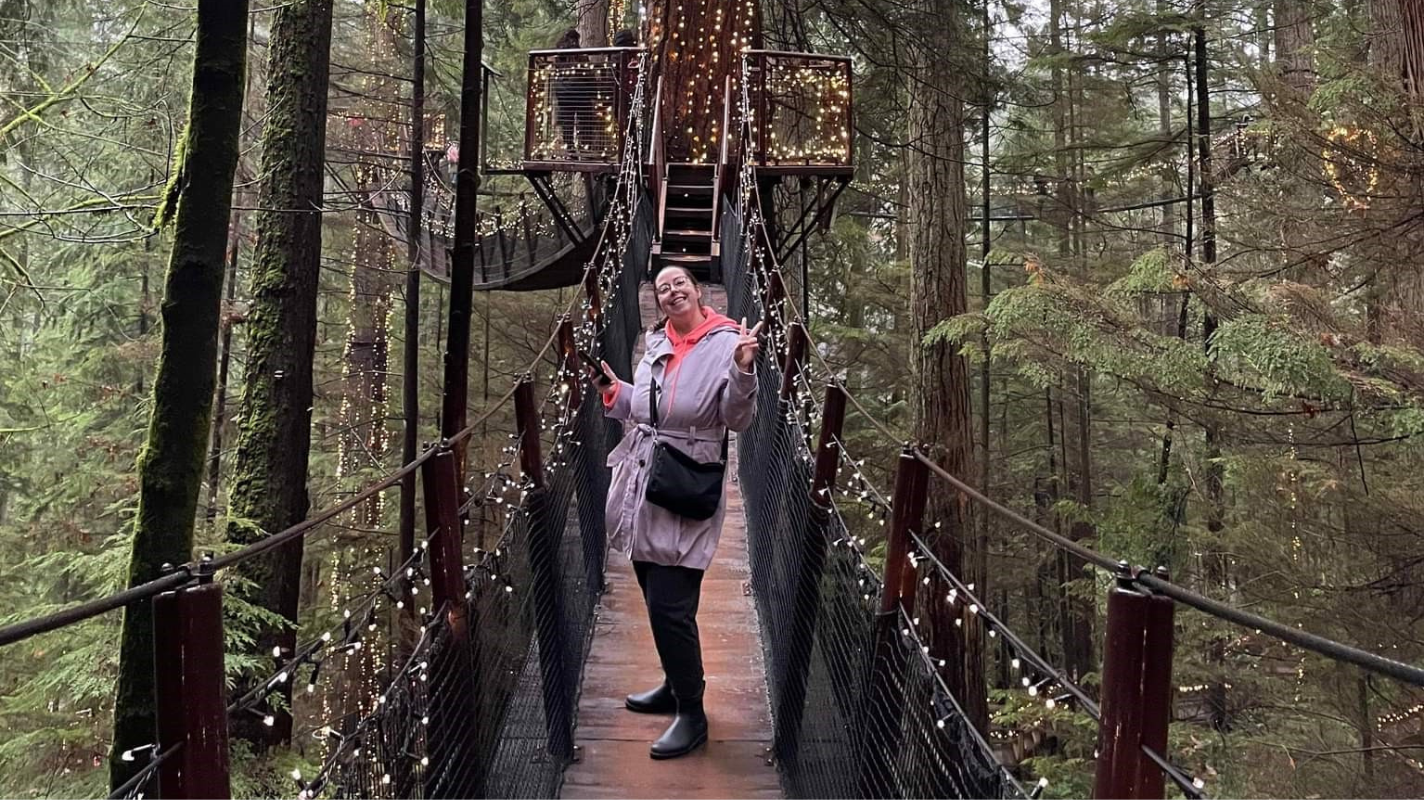From her early involvement in the iGEM competition to her research in the field of biochemistry, Sydnee Calhoun (MSc '23 (BSc Co-op '19)) has left an indelible mark on the University of Lethbridge and the world of scientific innovation. Her dedication to finding new strategies for combating antibiotic resistance has the potential to revolutionize the field of medicine.
My aim was to rationally design rancRNAs that target the bacterial ribosome as an alternative to traditionally produced antibiotics. This proposes a new strategy not only for targeting the ribosome but also provides a platform for researchers to develop traditional antibiotic compounds that target ribosomal regions that were previously unidentified. No RNA-based antibiotics exist on the market, meaning bacteria have not evolved resistance mechanisms. This means this class of antibiotic would be viable to treat any type of bacterial infection, no matter if it has developed antibiotic resistances.
Meet Sydnee. Ambitious. Curious. Collaborative.
Hometown: Lethbridge, Alberta
Program: Master of Science | Major: Biochemistry
Why did you choose to pursue graduate studies at ULethbridge?
I had completed an Honour's Thesis and enjoyed the research I was conducting. Additionally, I was interested in the RNA Innovation program that was beginning, as it would allow me to conduct research in an academic setting while also learning how to apply my skills in a job setting through the deepYellow challenge and my internship at FredSense Technologies.
What does your research / creative achievement focus on? What do you hope your research / creative achievement will accomplish?
Over 50% of currently used antibiotics target a process called translation. Translation produces proteins that are able to perform functions within the cell. The molecular assembler that is used to produce proteins in translation is called the ribosome. Many regions of the ribosome have been identified as being susceptible to antibiotics. Given the precedence of antibiotics working effectively during translation, this is a promising target for developing novel antimicrobial strategies. I studied a special type of RNA molecule, called ribosome-associated non-coding RNAs (rancRNAs). rancRNAs are capable of directly interacting with the ribosome like antibiotics do. My aim was to rationally design rancRNAs that target the bacterial ribosome as an alternative to traditionally produced antibiotics. This proposes a new strategy not only for targeting the ribosome but also provides a platform for researchers to develop traditional antibiotic compounds that target ribosomal regions that were previously unidentified. No RNA-based antibiotics exist on the market, meaning bacteria have not evolved resistance mechanisms. This means this class of antibiotic would be viable to treat any type of bacterial infection, no matter if it has developed antibiotic resistances.
What is your most memorable ULethbridge experience?
My most memorable experience was being able to participate in the iGEM competition during my undergraduate degree and the first year of my Master of Science. I was able to be involved in varying projects, from developing a diagnostic tool to monitor ambulance cleanliness for EMS workers to a cell-free system that is useable in a high school setting. On top of this, I was also able to mentor the next generation of scientists by being an advisor for the Lethbridge High School iGEM Team.
What is the most important lesson you learned during your time as a graduate student ULethbridge?
Graduate school taught me how to be resilient. Sometimes experiments will take longer than you anticipated, or you have unexpected results. While this may be disappointing, I learned to re-focus my thoughts and aims. This has continued to be applicable not only in my research but also in life while trying to figure out my next steps after graduating!
Is there someone specific who had an important influence on your ULethbridge experience?
I have had two major influences throughout my ULethbridge journey. I completed my thesis in the lab of Dr. Hans-Joachim Wieden, whom I began working with in high school when I was a member of the Lethbridge High School iGEM team in 2015. Dr. Wieden became a mentor through my iGEM experience and continued on when I became a member of his lab, providing me with guidance in my research and in life. Dr. Laura Keffer-Wilkes has also been another mentor for me as we began working together when I was a youth instructor for Destination Exploration in 2016. She taught me how to be a better mentor for women in STEM and continued to be a mentor for me in graduate school through my graduate teaching assistantship with the Lethbridge High School iGEM team and the RNA Innovation program.
Did you receive scholarships and awards? If so, please tell us a bit about how they helped you throughout your studies.
I was fortunate enough to receive several scholarships, including the Frederick Banting and Charles Best Canada Graduate Scholarship from CIHR, the School of Graduate Studies Fellowship, the Alberta Innovates Technology Futures Graduate Student Scholarship, and the RNA Innovation CREATE award from NSERC and the University of Lethbridge. This funding helped me to be able to focus on conducting research, complete my RNA Innovation program requirements and reduce stress about the cost of living. Additionally, I was also able to attend a few conferences to disseminate my research and meet other graduate students and researchers from other institutions.
What are your hopes/plans for the future?
I am currently working as a laboratory technician for the TIGeR (Translational Implementation of Genomics for Rare Disease) project in the Department of Medical Genetics at the Cumming School of Medicine. I have always been interested in multi-disciplinary science, and with this project, I am able to see the impact that the work I am completing has for individuals affected by rare disease. From this experience, I am hoping to continue working in clinical genetics as a Clinical Genetic Technologist.
What advice would you give to those about to begin their journey at ULethbridge?
Graduate school can be stressful, but make sure you take the time to build relationships with students around you to build a support system. It is also important to maintain hobbies, as taking breaks from school can help keep you grounded.


Photos submitted by Sydnee
Congratulations, Sydnee, on your graduation from the University of Lethbridge! Your inspiring journey, from iGEM participation to groundbreaking research in biochemistry, has left an indelible mark. Wishing you continued success as you embark on your career as a Clinical Genetic Technologist. Best of luck in all your future endeavors!
Update your contact information with Alumni Relations.
Find us on Facebook, Instagram or LinkedIn
Read more about your fellow alumni.